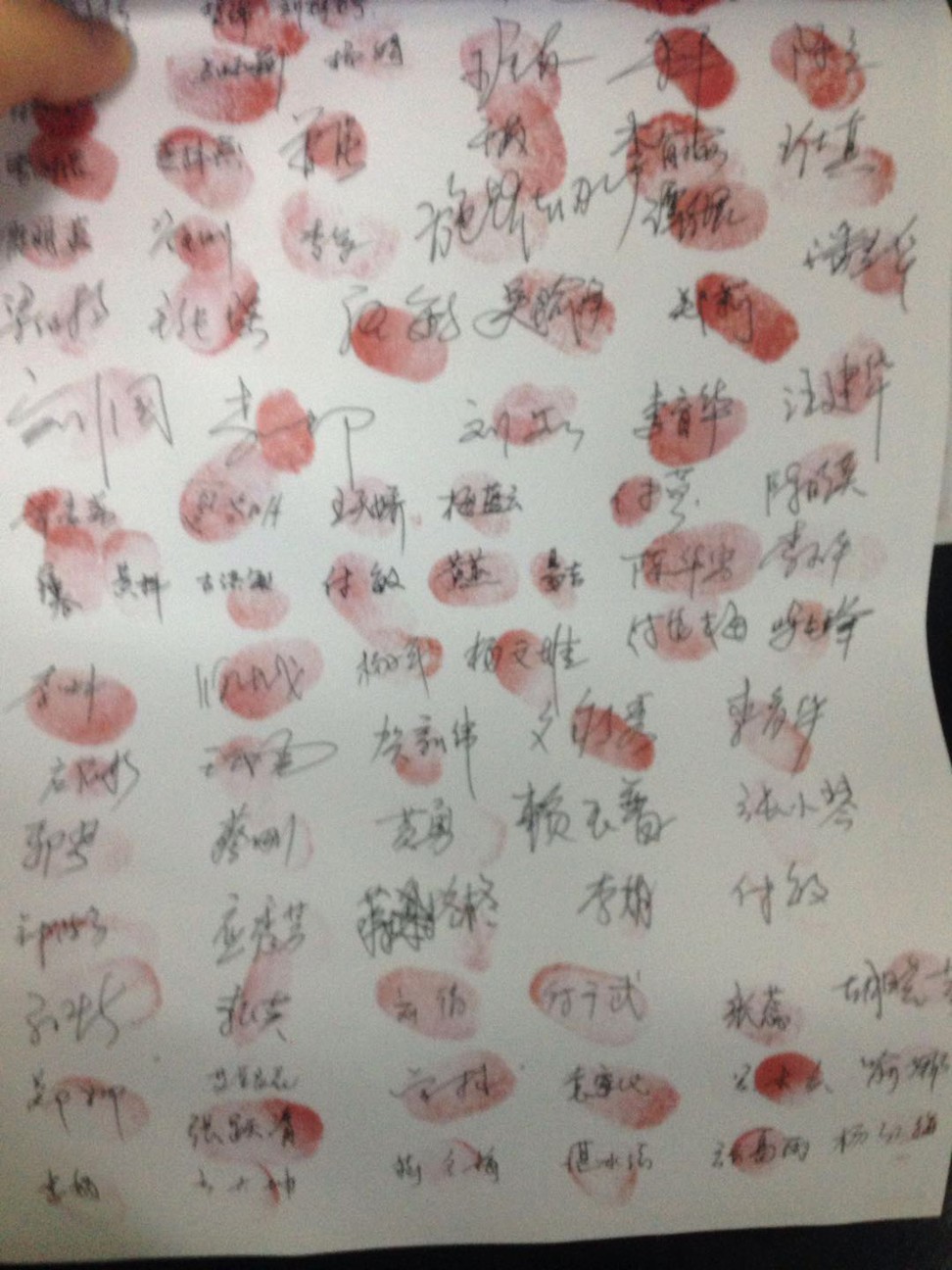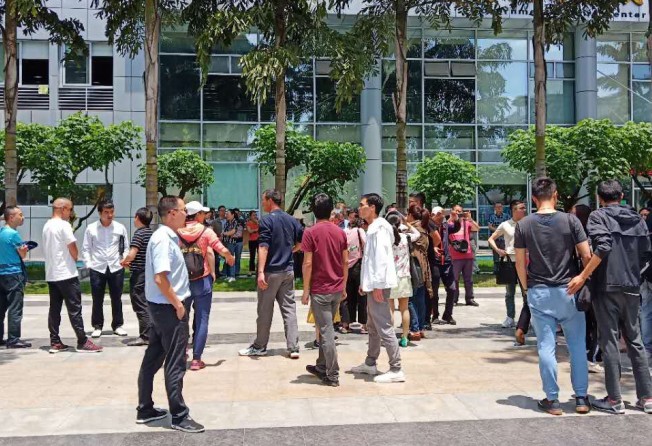
Hundreds of teachers protest in China over poor pay
- Petitioners say their incomes are much lower than public servants

More than 200 public school teachers protested outside a government office in southwestern China on Tuesday to demand better pay.
The teachers, from primary and middle schools in Jianyang, a county-level city in Sichuan province, rallied outside the municipal petition bureau and handed over a letter saying they were paid much less than other public servants in the region.
“Jianyang’s 10,000 teachers have suffered unfair treatment for many years and we are outraged,” the letter said. “We are fighting for our legal rights and we want our income to be on a par with that of public servants.”
Although national legislation stipulates that teachers’ remuneration must be at least as much as that of public servants, the income gap between the two groups in Jianyang has grown, according to the letter. While salaries had kept pace, there was a big gap in bonuses and other benefits, the teachers said.
One middle school teacher said the protest was triggered by the discovery about a month ago that public servants in the city would receive a 39,800 yuan (US$5,760) bonus this year, while teachers would get just 14,500 yuan.
“This bonus gap is bigger and bigger,” the teacher said. “In 2015, they received 10,500 yuan bonus and we teachers had only 7,000 yuan.”
The teacher, who signed the letter but did not take part in the protest, said public servants also received an additional month’s salary on top of the bonus, while teachers did not.
He said he had been teaching for 12 years and was paid 3,400 yuan a month.
“Public servants can also apply for a monthly car allowance ranging from 650 yuan to 1,590 yuan, but we can’t,” he said.
“The state stresses the need to respect teachers and to make education a priority but the Jianyang government does not follow this spirit at all,” he said. “Our income is at the bottom of society and we have low social status.”
A middle school teacher with nine years of experience in the classroom said her income was so low that it was difficult for her to buy a house and raise a family.
“We hope the authorities can treat us fairly and raise our incomes to that of public servants,” she said. “Please help us.”
An official from the Jianyang Education Bureau’s human resources department said the authorities had not come up with an answer to the teachers’ appeals.
“The protest just happened. We are checking with instructions from [the provincial capital] Chengdu,” the official said, refusing to give his name.
A third teacher said the education bureau told principals from the schools to go to the protest and take their teachers back to campus.
“One principal told teachers not to compare themselves with public servants, but to look at the conditions for teachers in nearby cities. Isn’t that ridiculous?” the third teacher said.
The education bureau also ordered social media chat groups – the main tool teachers used to organise the protest – be shut down.
In a notice on Tuesday, the education bureau said teachers were banned from distributing “unhealthy” content on social media and chat groups should be managed in accordance with regulations.
There was no mention of the protest on Weibo, China’s Twitter-like platform, on Wednesday.
Xiong Bingqi, deputy director of the 21st Century Education Research Institute, said public school teachers were paid by their county government.
“If the region’s fiscal revenue is not good, teachers there will be paid less. That’s why we have been calling for provincial governments to be responsible for paying teachers,” Xiong said.
“Since both public servants and teachers are paid by the local government, the big gap in income in the Jianyang case seems to show that the authorities do not pay due attention to the education sector.”
In May last year, 40 teachers in Luan, Anhui province, protested in front of the municipal government because their bonus was not paid on time. Police were called in to forcibly remove the demonstrators, for which the government later apologised. The government said it would investigate teachers’ conditions and resolve their problems.
The Chongqing Morning Post reported that there were no applications in the first week after authorities in Guangxi advertised roughly 2,000 teaching vacancies at primary and middle schools at the end of March. The lack of interest was attributed mainly to low pay.